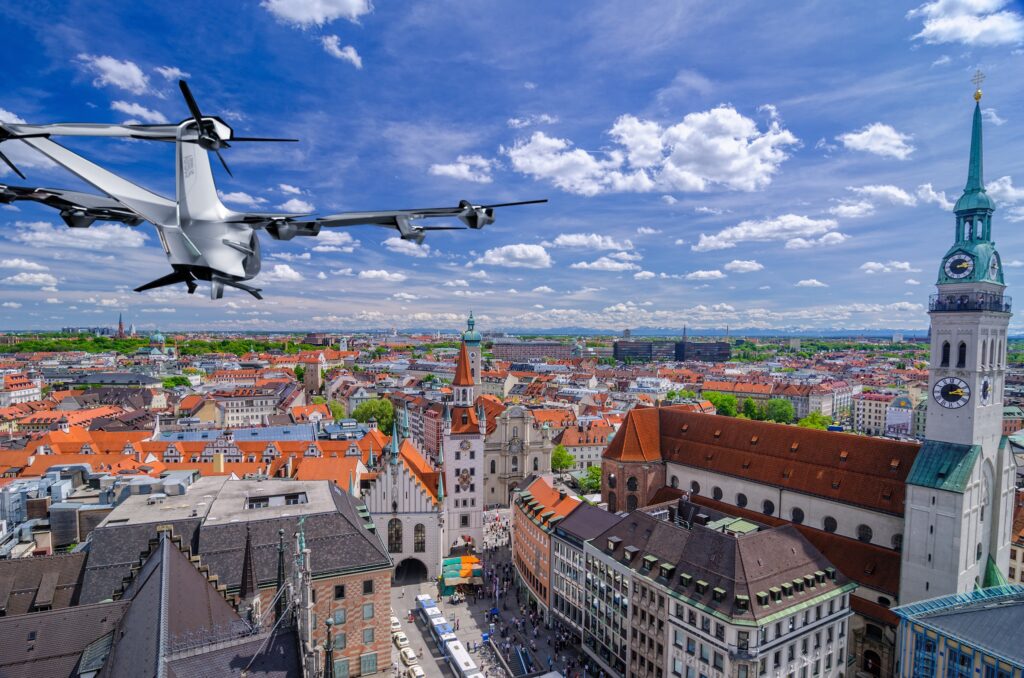German airport operator Munich Airport International (MAI) has formed a new joint-initiative to advance the development of regional and urban air mobility.
Alongside Munich Airport, members of the new Air Mobility Initiative (AMI) include Airbus, City of Ingolstadt, Deutsche Bahn, Deutsche Flugsicherung, Diehl Aerospace, Droniq, Red Cross and Telekom, among others.
Funded by the Free State of Bavaria and the Federal Republic of Germany, the initiative will set up a series of research projects aimed at making electric air mobility within and between cities a reality. The joint projects are centered around three main areas: electric aircraft, air traffic management services and vertiports, meaning the necessary infrastructure on the ground.
Dr Ralf Gaffal, CEO, MAI, said, “A few years ago, air mobility was just a vision. Today, with AMI, we are taking a big step towards realization. We at MAI see enormous potential in this new form of mobility. The AMI partnership enables us to jointly develop and implement scalable and sustainable air mobility concepts for the public.”
Andreas Thellmann, head of AMI, said, “We will examine the various elements of such an air transport system in realistic projects to gain an accurate picture of the technical and regulatory requirements. Electric air transport can enhance public transport, airports and time-critical mobility services, it will be environmentally friendly, quiet and safe.”
The AMI partners will initially look to address the technological, infrastructural, legal and social prerequisites for the future implementation of advanced air transport. Subsequently, the knowledge gained will be carried through a demonstration project under real conditions with electrically powered vertical take-off aircraft.
Work on the individual AMI projects began in January 2022. The test flights of the pilot project will be carried out in the region around Ingolstadt. The initiative is funded with a total of €17m (US$18m) from the Free State of Bavaria and €24m (US$25m) from the Federal Government. Together with the industry’s own funds, this results in a total of €86m (US$91m) over a period of three years. Airbus is responsible for the electrically powered aircraft together with Diehl Aerospace, University Stuttgart and other partners.
Under the leadership of MAI, a team consisting of interdisciplinary experts from Bauhaus Luftfahrt, Nuremberg Airport, the universities of Ingolstadt, Eichstätt and Munich, as well as other academic and industry partners, will work together on the integration of vertiports into airport infrastructure.


